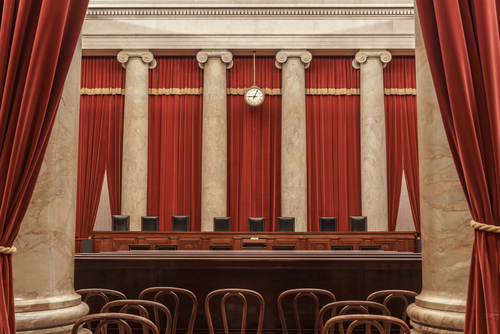Supreme Court decision on gay marriage shapes perception of social norms, studies conclude

Shutterstock.com
The U.S. Supreme Court decision finding a constitutional right to gay marriage changed the perception of social norms, according to a new study.
Rand Corp. researcher Margaret Tankard and Princeton professor Elizabeth Levy Paluck came to that conclusion based on two studies, before and after the June 2015 decision, Obergefell v. Hedges. NBC News noted the research (PDF).
The first study recruited more than 1,600 people before the decision to test attitudes after reading an article about the upcoming case. One version of the article said the Supreme Court was likely to rule in favor of gay marriage, while a second version said the court was unlikely to do so.
Participants were asked a series of questions about how much they believe support for gay marriage will increase; how much momentum there is to make gay marriage legal; their own opinions on making gay marriage legal; their opinion toward gay people, and their trust in the Supreme Court.
Those who were told the Supreme Court was likely to rule for gay marriage perceived more support for gay marriage and greater momentum for the issue. Attitudes in support of gay marriage and gays were also more positive than those in the other group.
The second study of 1,063 people asked the same series of questions, before and after the decision. The Supreme Court decision was associated with a significant shift in perceived social norms in favor of gay marriage, but did not change personal opinions about gay marriage or gay people, this study found.
Liberals and conservatives in both studies had similar changes in their perceptions of social norms.
Changes in perceived social norms matter because people often use their perceptions of what is common or accepted as a guide for their own behavior, the researchers say.
“What we are seeing is evidence that people interpreted the Supreme Court decision as signaling widespread change in society—increasing support for same-sex marriage,” Tankard said in an interview with NBC. The study “shows us that development in society at the institutional or policy level affects how we think about an issue. It affects the political climate, what we understand to be common, normal or accepted.”



